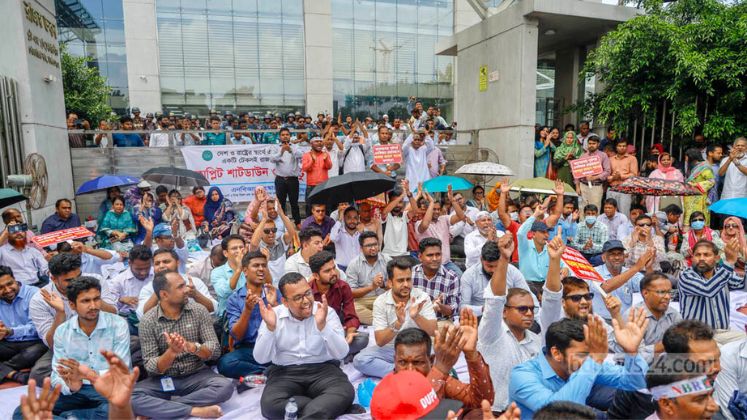
The customs shutdown led by officials of the National Board of Revenue (NBR) has been withdrawn following high-level mediation and government pressure, but not before causing severe disruption to Bangladesh’s trade, particularly in the ready-made garment (RMG) sector. The strike, which began over the weekend, brought operations at ports, customs houses, and land borders to a standstill, freezing import and export activities and damaging the country’s international trade reputation.
The NBR Reform Unity Council called off the protest Sunday evening after receiving “positive assurances” from the government, including during a meeting involving the finance advisor and key business leaders. The movement, sparked by dissatisfaction over a recent ordinance splitting the NBR’s structure without internal consultation, had led to a complete halt in customs clearance activities across the country.
RMG exporters, who rely heavily on timely shipments, were among the worst affected. Anjan Shekhar Das, a director of BGMEA and owner of RBS Industrial Ltd, said his company had 12 export consignments ready for the US and EU markets that could not be dispatched. Additionally, eight of his import shipments carrying raw materials were stuck at Chattogram Port. “We’re facing financial losses, potential penalties, and damage to our reputation,” he said.
The strike affected daily trade worth over Taka 25 billion, according to business leaders. Inland Container Depots in Chattogram reported that no export containers moved to the port on Sunday, where normally about 2,200 TEUs are dispatched each day. At Benapole, the country’s busiest land port, trucks carrying raw materials for major manufacturers remained stranded, causing further disruption to factory supply chains.
In response, the government declared all customs, VAT, and revenue-related operations as “essential services” and warned of strict disciplinary actions against those continuing to strike. The Anti-Corruption Commission also launched investigations into six officials involved in the movement, citing allegations of corruption and financial misconduct.
BGMEA President Mahmud Hasan Khan warned that the shutdown has severely impacted the RMG industry’s credibility and shipment schedules. “We cannot afford this kind of disruption at a time when global buyers are already cautious. This damages our competitiveness,” he said.
Although the strike has officially ended, stakeholders warn that the aftereffects, including backlogs at ports, shipment delays, and financial losses, will linger for days, if not weeks, across key export sectors.






